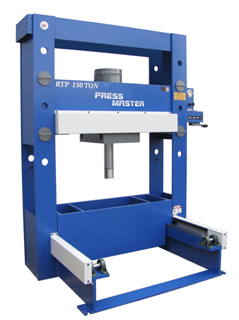The origin of many technological innovations can be traced to specific individuals. The same is true with the
hydraulic press. In this case, you need to go back to the year 1795 to the work of an English engineer by the name of Joseph Bramah. To get a grip on what’s so important about Bramah discovery, we need to understand the principles around these systems. And the most outstanding feature in hydraulic systems is its use of fluids.
Bramah’s Hefty Idea
Bramah studied the behavior of fluids and weights and noted that you could actually use them to lift heavy weights with minimal effort. You can see this technological insight at work today in vehicle jacks and in heavy-duty truck lifting systems to mention a few. Perhaps the most thoroughly enjoyable application of hydraulic press technology is our modern toilet.
Flush
In the toilet flush system, a small pump inside the tank fills up with water to a designated level. When you pull down the flush handle, it opens a valve and releases the water. This in turn releases the bob which forces the other water within the tank to flow with gravity towards the toilet basin below. This technology still applies to most toilets. It is cheap and easy to support because it needs neither oil nor grease.
Levers
Now, it is important to acknowledge that the hydraulic technology would have been dead in the water without a solid understanding of levers. There can be no doubt about it - levers make work light. After using simple levers, it must have occurred to some astute engineers that introducing a compressive force to tilt the lever could make it even more efficient and less strenuous. Remember to thank your lucky levers the next time you flush.
Automobiles
Another place where hydraulic press systems remain critically important is in automobile engines. The amount of compression required to convert the energy into motion through the use of gears and wheels is enormous. That is why most automobile engines including the one in your car or motorcycle use hydraulic compressors to generate the necessary force.
Pascal
It would be simply unfair to talk about hydraulic press systems without mentioning the principle of French mathematician Blaise Pascal. According to Pascal, the amount of energy within a closed system is uniform. This means that when you have weights of any kind introduced at the tail end of such a system, the weights can easily tilt as the pressure shifts within the system thus moving heavier weights than you can actually imagine.

